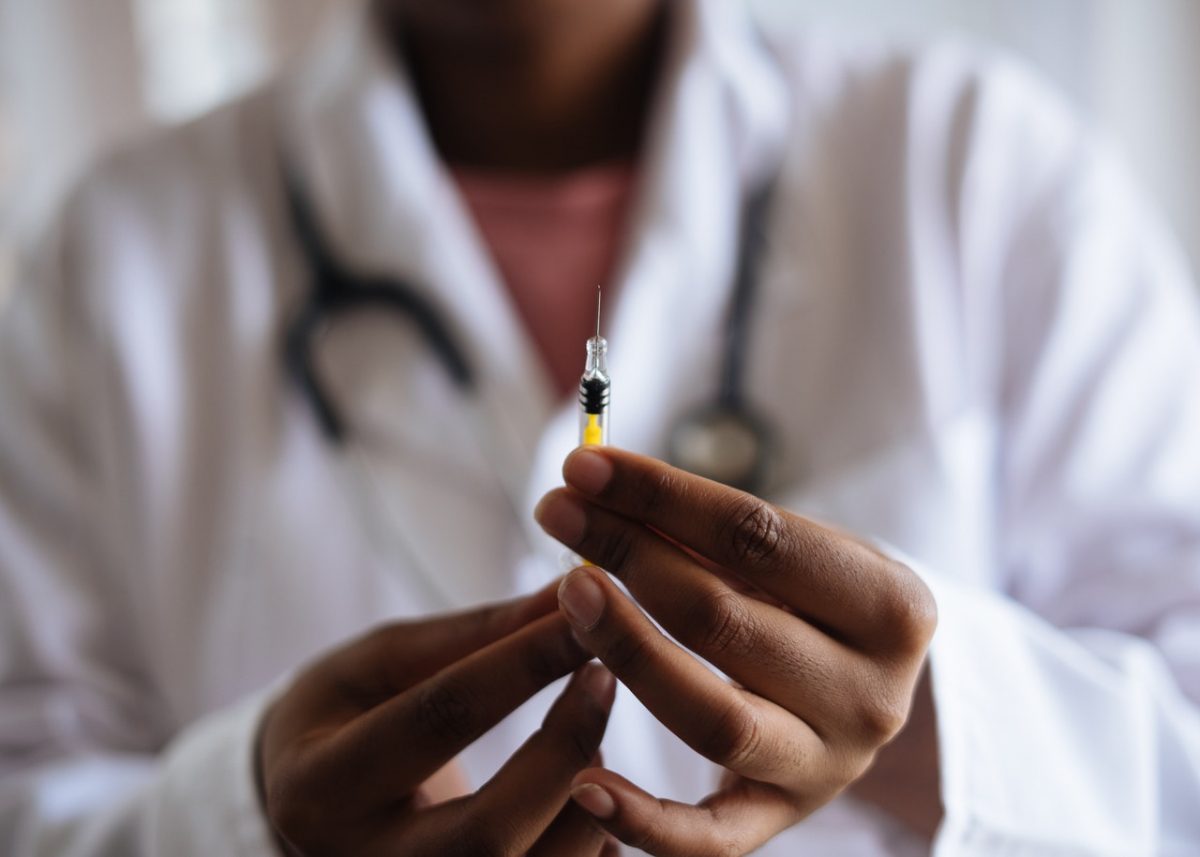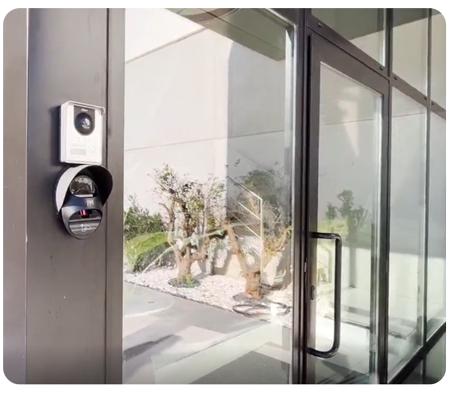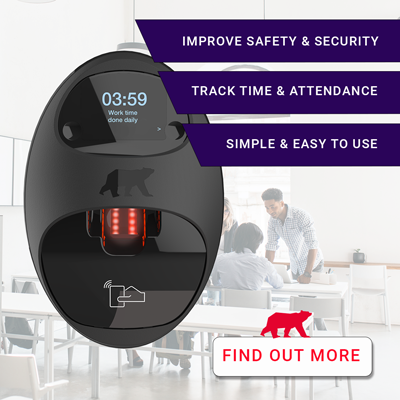

Blog
Covid Vaccine Storage: is your security up to it?
Almas Team

The vaccine rollout is a beacon of hope and success in an otherwise gloomy situation. The process of getting a vaccine from manufacture into arms is complex and there is risk and threat at every stage of the supply chain.
The Covid-19 pandemic is unlike anything the modern, technological world has ever seen. The speed with which it spread, the impact on human health – both physical and mental – and the sheer number of people it has infected, have forced us to adapt ourselves and create a new covid vaccine.
Of course, the good news is that there isn’t just one vaccine, there are several, each providing a ray of hope of returning to some kind of pre-pandemic normal. But that operation is not without its challenges – and dangers.
It’s staggering when you consider what’s involved in the logistics of delivering the vaccine to so many people so quickly. Even in its shortest form it runs from manufacture to storage, from there to more transport and then to more storage and quality control testing. Once tested it has to be transported again to a regional distribution hub before final, localised distribution from a mass-vaccination centre, pharmacy, surgery, or care home.
Bear in mind that’s just in the UK. Now transpose that to a global stage with all the political elements involved. Think of the potential in less well-developed countries for a lack of finance, a lack of infrastructure, or an abundance of corruption. It’s a lot to get your head around.
Sadly, these vials of life-saving liquid can’t just travel non-stop from factory to forearm; with all the holding, testing, cataloguing and organising before finally reaching their destination they spend a lot of time sitting around, which, for a drug like this, puts it at risk.
Increased demand means greater risk
The unprecedented scale of the global pandemic makes the demand for a Covid vaccine equally unprecedented. Where there is demand and shortage and money to be made, crime and corruption will follow, and demand will, for the foreseeable future, far outstrip supply, making any of the vaccine variants ripe for resale on the black market.
This month there were reports of companies attempting to ‘bribe’ GPs for ‘leftover’ vaccines. Even back in November and December, there were reports of unapproved (and therefore illegal) Russian vaccines trading on the UK black market for £800.
Of course, some of these black market vaccines will be fake, but not all. The volume of vaccines in the supply chain at any point means that the health service has had to source new storage facilities which may or may not be accustomed to dealing with the security risk that such a high-profile and high-demand drug presents.
Pharmacies are a prime example of local distribution and they are aware of the risks that drugs carry when in storage – particularly prescription items like Oxycontin, Temazepam, Tramadol, and Methadone.
What we’re looking at with the Covid vaccines, however, is not necessarily the cliched story of a drug-user attempting to break in for a fix. What we’re looking at is the potential for organised, capable criminal elements stealing substantial quantities of a highly sought-after and potentially life-saving drug.
There is also the additional risk of vandalism and destruction by anti-vaxxers.
Always remember: it’s not just the building system that presents a risk, it’s the people, too.
The Pharmaceutical Journal obtained data under the Freedom of Information Act showing that the NHS recorded nearly 3,000 instances of “unaccounted-for losses” of controlled substances in 2018/19. Some of these are legitimate losses – breakages and so on – but some are believed to be theft from within the system. A combination of over-prescription, light-fingered patients, and rare, unscrupulous healthcare workers are all thought to be responsible for the figures.
If you are storing Covid vaccines, is your security system up to the task of keeping the vaccine safe? Here are some points to consider.
Accurate Covid Vaccine Inventory
There will always be the potential for missing items if your inventory and organisation system isn’t up to scratch. It’s particularly important with medicines as if you don’t store items correctly they may spoil, costing both you and the drug company money and potentially endangering lives.
A poor system is open to abuse too, as employees are less likely to notice that something is missing. Knowing what should be there, where it should be, and who was on site when it was, are all integral aspects of keeping the vaccine safe, being able to solve problems when they occur, and stop them from happening again.
Security: Intruder Alarms
Do you have a comprehensive alarm system? Is every external door and window secure and accounted for? What about inside your facility? Do you have PIR sensors covering the floors and hallways?
Are you able to easily identify false positives and be able to confirm an intrusion is just that, and not some papers falling on the floor?
What backup systems and redundancies do you have in place? Will you know there’s been a break-in if they cut the landline or your internet connection?
A robust, integrated intruder alarm system is an important and effective method of deterring criminals from attempting to access your property. However, if there is a verified intrusion, what will the response be? Keyholder, security guard or policy response?
Security: CCTV Cameras and Monitoring
An alarm might tell you someone is there, but a high-quality CCTV system can capture who it is. It’s perfectly possible that whoever set off your alarm is just an employee coming to work late or because they’ve forgotten something. Then again, it may be something more suspicious.
Integrating video with your alarm system provides an extra layer of protection allowing you not just to know something is happening but also to see it. In combining an intruder alarm with video and modern mobile security apps, you can instantly see what’s going on and decide on the next course of action, wherever you happen to be.
Security: Biometric Access Control
The weakest point in most security systems is the people who use it.
Keys, fobs, and swipe cards can all be stolen and there is no accountability as to who is accessing storage areas – and not just by someone outside the company. With so much to gain it’s not uncommon for criminal elements to bribe an existing and possibly disgruntled employee to get what they want: access to your property.
Biometric security and access control, in the form of fingerprint scanning or facial recognition, helps prevent the weakest link breaking the security chain.
By granting access through fingers and faces, it’s no longer possible for someone to hand over their keycard in exchange for cash. Nor is it worth someone going to the time and effort or take the risk of attempting to steal one.
Combine this with your alarm system and you know exactly who is in the building and when, and for how long. You know who opened a door at what time, and with biometrics, you can be sure that it was them that opened it and not someone else using their key, providing instant accountability.
Beating Covid Together
One thing that the pandemic has taught us is that we’re a lot better working together to solve our problems with innovative Covid vaccine solutions. Pfizer and BioNTech, Oxford and AstraZeneca are just two examples. Everyone maintaining social distancing, wearing masks and washing our hands are three more.
We can’t create a vaccine, it’s not what we do.
What we can do, by working together, is help keep that vaccine safe for everyone else.
If you would like further information or advice as to how to strengthen your security – please contact the team at Almas Industries today to discuss biometric access control, biometric readers, or facial scanners for your business. You can call us on 0333 567 66 77 or email us: enquiries@almas-industries.com.



